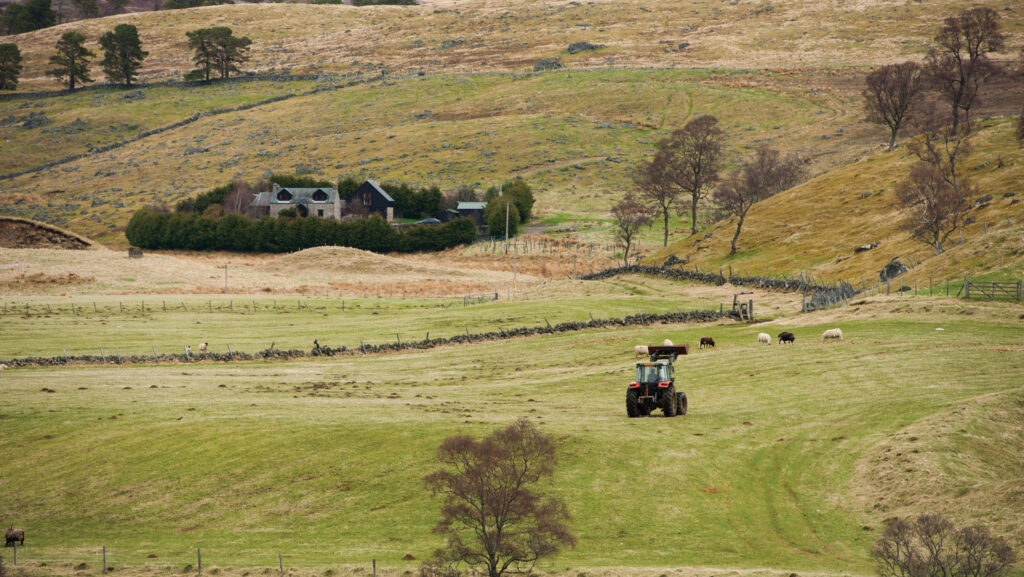Outlook 2025: Farm policy and support in England and regions
 © arodPEI/Istockphoto
© arodPEI/Istockphoto Across the regions, all eyes will be on farm support being offered in existing and new schemes.
In 2025 Wales and Scotland will continue to receive BPS with England seeing deep cuts, but all regions will see pressure on budgets.
See also: Budget highlights need for inheritance document housekeeping
Summary
- More farmers assessing current and future farm support
- Defra “fully committed” to ELM but has implemented deep cuts to delinked BPS payments
- BPS will continue in 2025 in Scotland, conditional on certain actions on farm
- Sustainable Farming Scheme in Wales has been delayed until 2026, with BPS retained for 2025
England
Record rainfall and changes to the Basic Payment Scheme (BPS) in England have created the perfect storm; many are considering how to de-risk their businesses and are looking more closely at what farm support is on offer, or will be, under the new schemes.
New Defra ministers have confirmed “full commitment” to Environmental Land Management (ELM).
However, following the Budget, Defra announced deductions to delinked BPS payments far deeper than forecast, says Andersons senior business research consultant Caroline Ingamells.
For 2025, Defra plans a 76% cut to the first £30,000 of a payment; Andersons had previously estimated 65%.
For amounts above £30,000 there will be no payment at all. This means all English farms will receive a maximum of £7,200 in direct payments next year, with deductions for 2026 and beyond still unknown.
The rollout of the expanded 2024 Sustainable Farming Incentive (SFI) has been slower than expected, with an increase from 23 options to 102 (some new, some previously available via Countryside Stewardship Mid Tier), all of which use the legacy Rural Payments Agency systems.
It is strongly believed that there will be no major changes to SFI for 2025.
More details on the Countryside Stewardship Higher Tier were released in December. There will be a “gradual” rollout.
The first applications will be by invitation only, with these businesses being contacted by RPA from 6 January 2025 to start drawing up their proposals.
However, no applications can be submitted until summer 2025; a frustrating delay.
The final element of ELM, Landscape Recovery (LR), funds longer-term bespoke projects over large areas, usually involving several land managers to enhance the natural environment and deliver significant benefits.
Defra had aimed to open the scheme annually, but at the time of writing it had not been available in 2024.
There is also a question over the future of existing LR projects.
Defra funding was initially meant to be short term, with schemes drawing in private funding longer term, but it is not clear that there is enough private finance available to support all these projects.
Scotland
Scottish farmers continue to receive full BPS subsidy receipts, although the announcement regarding this was made on the same day the Scottish government announced £500m of public sector budget cuts.
We are likely to see ongoing pressure on the Scottish government to recoup millions of pounds of funding that was ring-fenced for the rural economy, says Andersons northern director Ben Kellagher.
The passing of the Agriculture and Rural Communities (Scotland) Bill in 2024 provided powers for the Scottish government to run its new farm support system.
BPS in 2025 will continue as in previous years, with “conditionality” added.
Carbon audits, soil sampling and animal health and welfare appear to be the chosen routes, but it feels like a box-ticking exercise rather than an opportunity to improve business efficiencies and cut emissions.
Beyond 2025, the Scottish government’s route map indicates major changes to agricultural policy.
However, budgetary pressures mean there is likely to be little change in the model to deliver farm support, with the retention of the three payment regions, coupled support (suckler calf and ewe hogg payments) and the Less Favoured Area Support Scheme.
The Tier 1 (base) and Tier 2 (enhanced) payments will probably be introduced.
The Land Reform (Scotland) Bill 2024 is passing through the Scottish parliament.
Proposals include prohibiting sales in certain circumstances for landholdings larger than 1,000ha until ministers have considered their potential impact on the local community.
This could result in large holdings being split to enable community purchase.
Wales
The new Sustainable Farming Scheme (SFS) in Wales, due in 2025, has been delayed until 2026.
BPS will be retained in 2025, and will probably reduce in increments from 2026 to 2029, says Andersons consultant Kerry Jerman.
During this transition, farmers will have the option of claiming either BPS or the new scheme. The final consultation on SFS closed in March 2024 and at the time of writing we await the confirmed details.
Some 17 universal actions were included in the consultation, with some already being integrated into other grant schemes and advisory services.
Other grant schemes in Wales are also aligned to the objectives of the SFS and the Control of Agricultural Pollution (CoAP) Regulations, with funding for slurry infrastructure and handling investment, establishment of herbal leys, unsprayed cereals and cover crops.
Farming Connect help will continue for another financial year, to aid farmers in achieving the Sustainable Land Management (SLM) outcomes of the future SFS, namely business planning, nutrient management planning and carbon audits.
All CoAP regulations are now in place and are being enforced through planned inspections.
